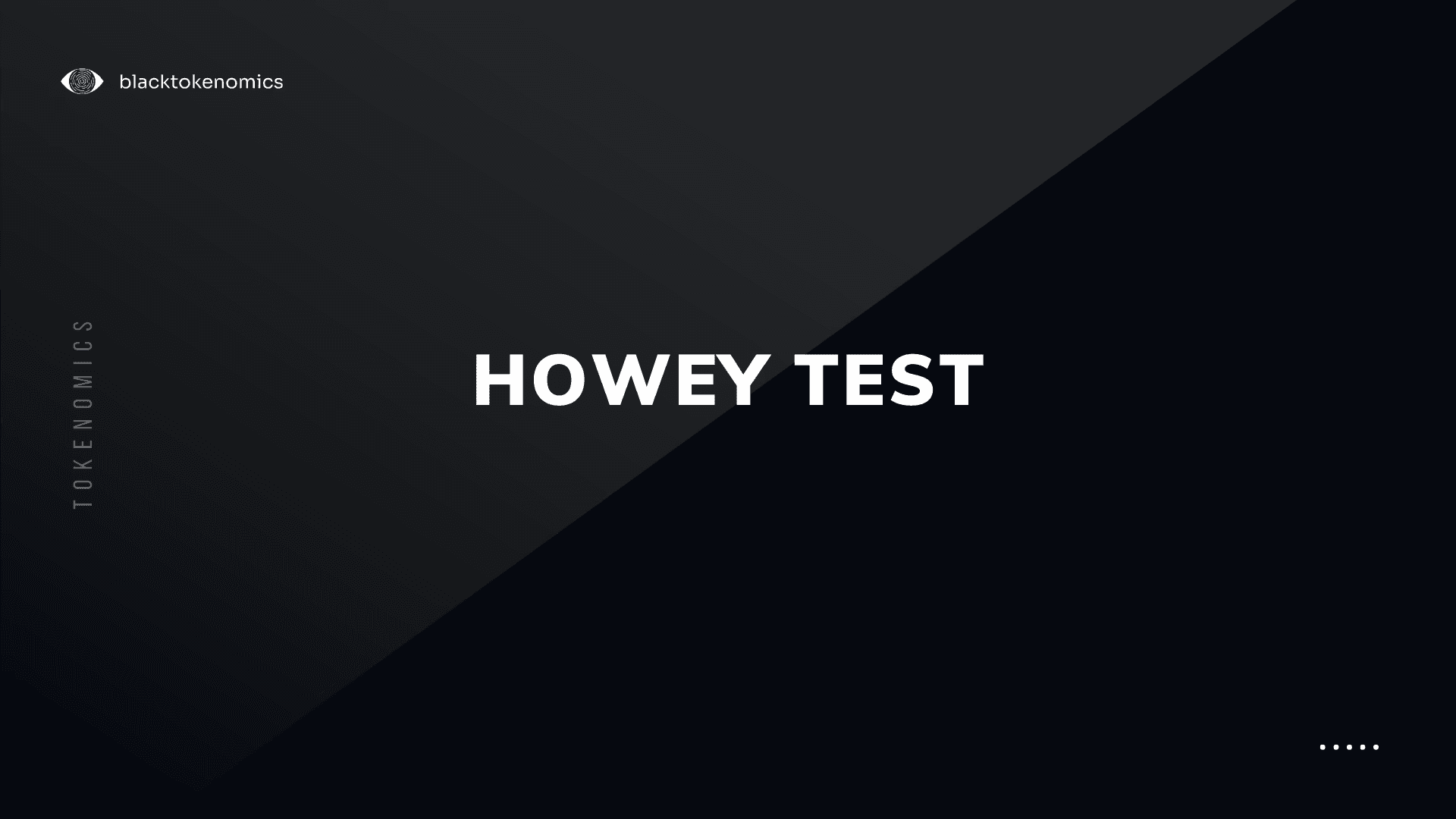
Sven
In the ever-evolving world of cryptocurrencies and digital assets, understanding the regulatory landscape is crucial for both entrepreneurs and investors.
Enter the Howey Test – a vital tool that assesses whether a transaction is an investment contract subject to securities regulations.
This blog post will take you on a comprehensive journey through the intricacies of the Howey Test, its applicability to cryptocurrencies, and its impact on the industry.
Key Takeaways
The Howey Test is a legal framework used to identify whether a transaction falls under securities regulations in the cryptocurrency industry.
The SEC’s Framework for Investment Contract Analysis provides guidance on distinguishing digital assets as securities, while state-level regulations should be taken into account to ensure compliance with all laws and regulations.
Due diligence and legal consultation are essential processeswhen considering digital assets to safeguard against financial losses, fraud, and other liabilities.
Demystifying the Howey Test
Established in 1946, the Howey Test serves as a legal framework to identify whether a transaction qualifies as an investment contract, thereby falling under securities regulations.
As cryptocurrencies continue to gain traction and become more mainstream, the Howey Test plays a pivotal role in the classification and regulation of digital assets.
But, what is the origin of this influential test, and what are its key components?
The 1946 Supreme Court Case
Originating from the landmark Supreme Court case, SEC v. W.J. Howey Co., the Howey Test was born out of a dispute over the sale of land with citrus groves in Florida.
The Howey Company employed a business model where they would sell land with citrus groves to investors through land sales contracts.
Investors would then lease the land back to Howey, who managed the land and shared profits from the harvested citrus fruit.
However, the company failed to register these transactions as securities, prompting the SEC to intervene and protect the interests of the investors.
The Supreme Court determined that the leaseback arrangements constituted investment contracts under the Securities Act of 1933, as the service company engaged in managing the land and sharing profits with investors.
This decision laid the foundation for the Howey Test, a set of criteria for recognizing securities, including land and service contracts, that continues to impact the financial world today.
Key Components of the Howey Test
Four primary elements form the basis of the Howey Test to ascertain if an investment contract exists and if a transaction qualifies as such:
A monetary investment
Involvement in a common enterprise
Expect profits solely
Reliance on the efforts of others
These elements help manifest involve investment contracts and determine if transactions involve investment contracts.
This test, which may involve the issuance of a temporary or interim certificate, is applicable to countless and variable schemes, assessing if a transaction constitutes an investment contract and falls under securities regulations.
While the term “common enterprise” lacks a definitive definition, many federal courts consider it as a horizontal arrangement where investors pool their resources to invest in a business venture.
In essence, the Howey Test helps determine if a transaction qualifies as a security, making it subject to the disclosure and registration requirements outlined in the Securities Act of 1933 and the Securities Exchange Act of 1934.
Cryptocurrencies and the Howey Test
As cryptocurrencies and blockchain technology gain prominence, the Howey Test’s importance in assessing whether these digital assets are deemed securities and fall under regulation cannot be overstated. For a deeper understanding of how token economics might influence your project, consider using a tokenomics calculator. To use this tool and explore its benefits for your project, click here.
From Bitcoin to Initial Coin Offerings (ICOs), the application of the Howey Test offers insights into the regulatory landscape for digital assets and the challenges faced by authorities.
Bitcoin and the Howey Test
Interestingly, Bitcoin does not fit the bill as a security under the Howey Test, as it does not fulfill all four prongs of the test. According to Jay Clayton, former Chairman of the SEC, Bitcoin is not considered a security.
However, this is not the case for all digital assets, as tokens utilized in ICOs are often classified as securities, subjecting them to regulatory compliance.
The SEC provides a framework for investment contract analysis to determine if a digital asset is a security.
This framework considers factors such as the economic realities of the transaction, the manner of marketing, and the reasonable expectations of purchasers.
Evaluating the investment potential of a digital asset and ensuring compliance with securities laws demands both thorough due diligence and legal consultation.
ICOs Under the Howey Test
When it comes to ICOs, the Howey Test plays a significant role in defining their regulatory status. In many cases, ICOs are considered securities under the Howey Test, making them subject to regulations.
Consequently, ICOs must comply with securities laws to ensure legal compliance and safeguard investors.
The role of the Howey Test in shaping ICOs underscores the necessity to comprehend the regulatory landscape of digital assets.
For entrepreneurs and investors alike, being aware of the Howey Test’s criteria and the implications of securities regulations is essential for navigating the complex world of cryptocurrencies and ICOs.
Regulatory Challenges
Cryptocurrencies’ decentralized nature poses regulatory challenges for authorities, given that the existing frameworks were designed with traditional securities in mind.
The Howey Test’s application to digital assets like cryptocurrencies and ICOs has unveiled complexities and challenges in addressing fraud, modernizing regulations for the digital age, and ensuring compliance with SEC regulations.
As the world of digital assets continues to evolve, so must the regulatory landscape to protect investors and maintain market integrity.
Notable Cases Involving the Howey Test and Cryptocurrency
The industry’s regulatory landscape has been significantly influenced by several notable cases involving the Howey Test and cryptocurrencies.
From the high-profile Ripple and XRP case to other significant legal proceedings, these instances have provided valuable insights into the application of the Howey Test to digital assets and the challenges faced by regulators.
The Howey Test is a four-part test used by the U.S. Securities.
Ripple (XRP)
The Ripple and XRP case is a prime example of the complexities involved in applying the Howey Test to digital assets.
The U.S. Securities and Exchange Commission (SEC) initiated a lawsuit against Ripple Labs for allegedly offering unregistered securities in the form of XRP tokens.
The case is still ongoing, and its outcome could have far-reaching implications for the crypto industry and securities regulations.
In September 2023, the legal team of Ripple indicated in a document that the appeal request by the SEC primarily originated from their “dissatisfaction” with the judge’s decision, which stated that the XRP token did not meet the criteria to be classified as a security for sales to retail investors.
This high-profile case highlights the challenges faced by regulators in classifying digital assets as securities and enforcing compliance.
It also underscores the importance of understanding the Howey Test and its implications on cryptocurrencies and ICOs for entrepreneurs, investors, and legal professionals alike.
Other Significant Cases
Aside from the Ripple and XRP case, other significant legal proceedings have further clarified the application of the Howey Test to cryptocurrencies.
These cases, such as the Terraform case, provide valuable insights into the evolving regulatory landscape for digital assets and the challenges faced by regulators in ensuring compliance with securities laws.
Securities Laws and Digital Assets
Digital assets are subject to securities laws and regulations, for which the SEC provides an analytical framework for investment contracts.
This regulatory landscape is crucial for understanding the legal implications of cryptocurrencies and ICOs, and requires due diligence and legal consultation to navigate effectively.
SEC's Framework for Investment Contract Analysis
The SEC’s framework offers guidance on determining if a digital asset is an investment contract and subject to securities laws.
This framework considers the economic reality of the transaction, the reasonable expectations of purchasers, and the manner in which the investment is offered and sold.
Adhering to the SEC’s framework enables entrepreneurs and investors to grasp the legal implications of digital assets and maintain compliance with securities laws.
This guidance is invaluable in the ever-changing world of cryptocurrencies and ICOs, where the line between security and non-security can be blurred.
State-Level Regulations
In addition to federal securities laws, state-level statutory and administrative rules, such as “Blue Sky” laws, also play a role in governing digital assets.
These state-level regulations can influence how digital assets are purchased, sold, and exchanged, as well as how they are used for investment purposes.
Digital asset investors should be mindful of pertinent state-level regulations to ensure compliance with all laws and regulations, and should seek guidance from a legal expert well-versed in this area.
As the regulatory landscape continues to evolve, staying informed about state-level regulations is crucial for successfully navigating the world of cryptocurrencies and ICOs.
Navigating the Regulatory Landscape
Steering through the regulatory landscape of cryptocurrencies and ICOs can be intricate and intimidating, necessitating thorough due diligence and professional legal advice.
By understanding the intricacies of the Howey Test, the SEC’s framework for investment contract analysis, and state-level regulations, entrepreneurs and investors can better equip themselves to face the challenges of the ever-evolving world of digital assets.
With the right knowledge and resources, business and professional people can make informed decisions and take the necessary steps to embark on a profit seeking business venture.
Due Diligence
Comprehensive research is indispensable for grasping the impact of the Howey Test on digital assets and for ensuring adherence to securities laws.
Due diligence entails reviewing the details, assets, liabilities, benefits, contracts, and potential risks of a company, investment opportunity, or transaction to guarantee legality and facilitate informed decisions.
Failure to conduct due diligence may result in fraud, financial losses, and legal liabilities.
By investing time and effort in researching and verifying the facts and details of a digital asset, entrepreneurs and investors can better navigate the complex regulatory landscape and make informed decisions.
Legal Consultation
In the convoluted realm of securities laws and regulations for cryptocurrencies, professional legal advice is a necessity.
Legal consultation can help entrepreneurs and investors comprehend their rights, obligations, and potential legal options, ensuring compliance with all applicable laws and regulations.
By consulting with experienced legal professionals, entrepreneurs and investors can better understand the legal effects of their actions and make informed decisions that protect their investments and comply with securities laws.
In the ever-evolving landscape of digital assets, legal consultation is an invaluable resource for staying informed and navigating the complex regulatory environment.
Summary
As cryptocurrencies and digital assets continue to reshape the financial landscape, understanding the regulatory implications of the Howey Test, the SEC’s framework for investment contract analysis, and state-level regulations is paramount.
By conducting due diligence and seeking legal consultation, entrepreneurs and investors can successfully navigate this complex world and contribute to the growth and development of the digital assets industry.
Sven
Sven is a digital entrepreneur with over 8 years of experience in SEO. He has helped Web3 businesses optimise their online presence online. He has a deep understanding of the Web3 space and ensures to vet all the projects BlackTokenomics works with.



